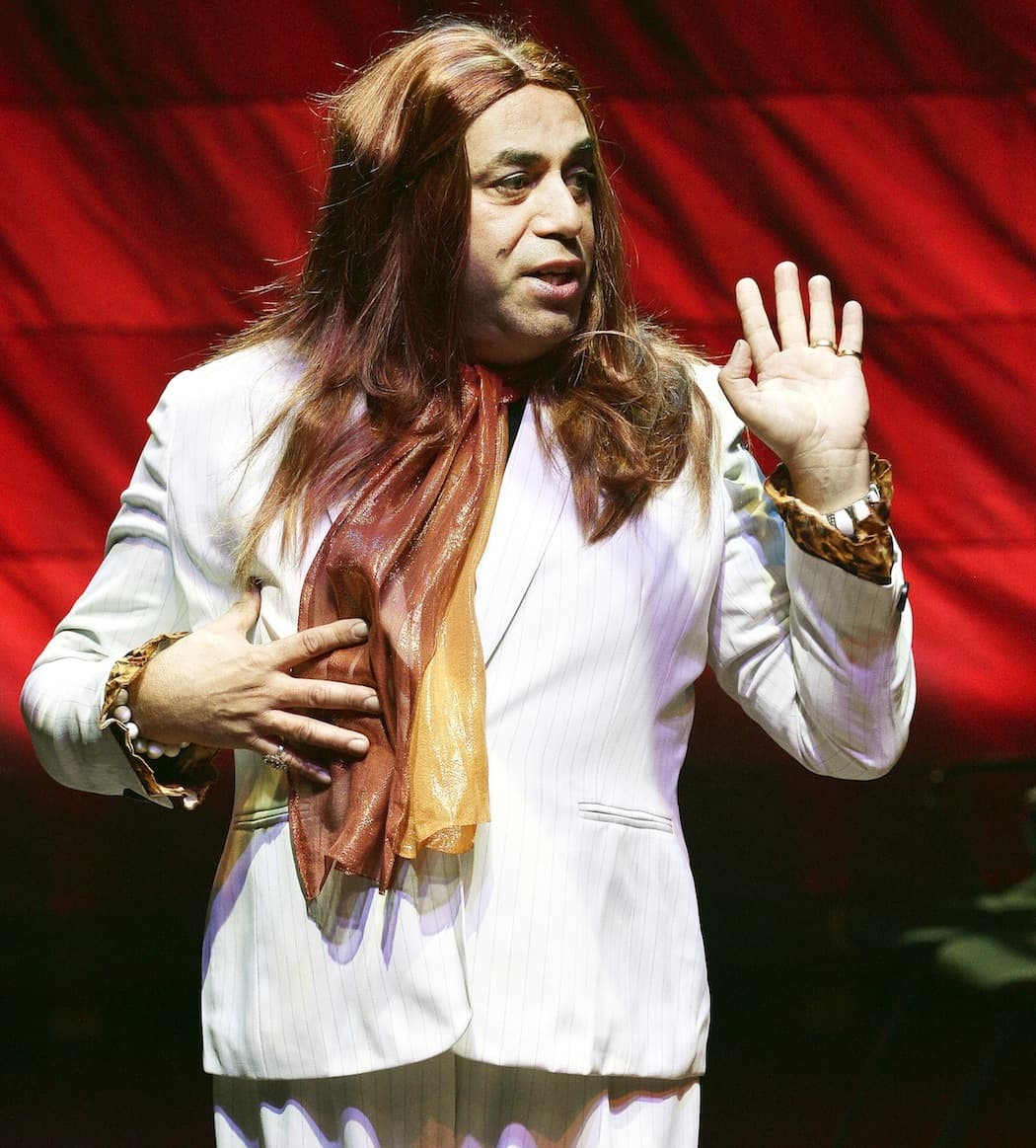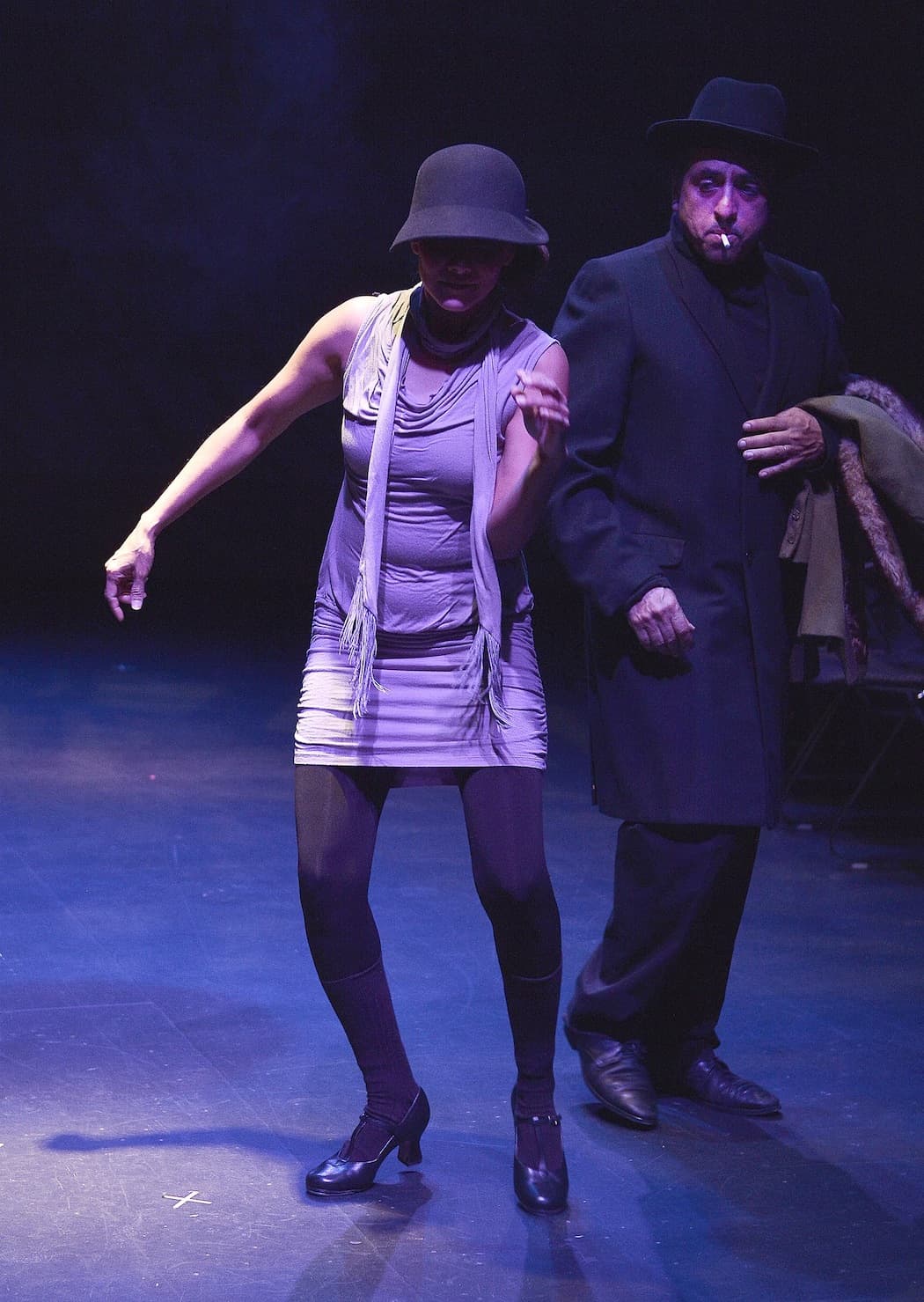Advertisement
Culture Clash — Stirring The Melting Pot With A Latino Twist
The sketch comedy of Culture Clash has been described as having a “Latino point of view,” a perspective that satirizes America's great melting pot as well as the Latino cultures it includes. That viewpoint is in full force, together with their flair for social commentary, as the troupe plays through March 29 at the Paramount Center as part of ArtsEmerson’s “World on Stage” series.
The group formed more or less as a Cinco de Mayo lark 31 years ago. The original membership numbered six, but has dwindled to three of the original members, Richard Montoya, Ric Salinas and Herbert Sigüenza, who are joined by dancer and choreographer Claudia Gomez for this retrospective show, titled “Culture Clash 30th Anniversary Tour: Muse & Morros.” Gomez plays the Muse; the guys play the “morros,” which, we are told, is a riff on the word “Moor,” as in “Othello” — in other words, the dark-skinned people of the world, whom the whites, still mostly in charge, continue to regard with a degree of condescension mixed with suspicion.
The “Muse,” of the title is seemingly the inspiring concept of America itself — less a location than a multi-ethnic agreement to try letting people self-govern, self-express and self-determine. The idea is easier to reflect upon than to implement, but it’s a lovely thing all the same. The Muse as America’s great democratic, multi-ethnic experiment is suggested by Gomez’ show-starting tap routine, a long, intricate performance that opens the show on a dynamic note. Like America, tap has roots in Europe but developed here; it’s homegrown, like jazz, and, like jazz, it has drawn on the talents of early African-American masters of the form, artists who imprinted it with indelible defining characteristics.
At its heart, the show is an immigrants' journey across time and geography, segueing from the finesse of Gomez’ tap routine to a mini-lecture on the various styles of salsa dance as it’s done in Cuba, Central America and the Puerto Rican community of New York’s Lower East Side. After that, we shift to the West Coast and Culture Clash’s native San Francisco, where a pre-operative transgender former prostitute — now health care worker — praises her straight boyfriend for overcoming his fears and insecurities out of love for her. (She expresses her delight with his attitude, and his skimpy briefs, with a bilingual pun.) She then explains how homophobia and AIDS rates are connected in the Latino community, and describes, in detail, the reconstructive aspects of what sex reassignment surgery entails.

At this point, more than one male audience member moved at least one hand to an unconsciously protective position in his lap. That’s in keeping with the troupe’s goal, one senses: To provoke laughter and unease at the same time. Every sketch Culture Clash delivers comes armed with that double-edged blade, from a monologue by a Muslim taxi driver in Washington, D.C., to a stream of trash talk offered up by a bling-laden, pager-toting Asian fellow trying to “act black” by embracing borderline-offensive stereotypes. This is volatile stuff, but the group stays closely in tune with the audience and expertly juggles their material.
Culture Clash also remind us that this is a country of immigrants, and even if we grew up here the resonances of times past haunt us still. In one monologue, an El Salvadorian immigrant refers to his teenaged son, who has grown up thoroughly American, as a “stranger in [his] house.” A Southern preacher recalls how the Baptist church was a balm for African Americans. (He goes on to laugh at the almost self-parodying fact that white Americans seem to believe that Jesus – who lived in the Middle East – looked “like Brad Pitt.”)

The issue of America’s faith traditions is inextricably linked to our widely sourced cultural heritage, and even when there's no Latino element to an individual piece, the troupe fearlessly, and skillfully, find a way to make social comment a prime motive. One exceptionally powerful segment presents an Catholic Bostonian of Irish-American heritage in a monologue about the shock of discovering that a single pedophile priest has victimized not only the narrator, but also his every male friend and relative. A confrontation with the aged perpetrator ensues, blossoming unexpectedly into a meditation on grace and forgiveness.
The troupe’s working methods include recording the words — and sometimes video — of an interview subject, and then re-enacting and interpreting what the subject has said. With video, the troupe is able to study and adopt a speaker’s body language, as well. The final two sketches take on a meta-twist by re-enacting this research in action: In one, a Miami couple – a man of Norwegian descent and his Cuban-American wife — welcome a member of Culture Clash into their home, and proceed to create an unself-conscious torrent of verbose comedy gold. In the other, a wheelchair-bound Puerto Rican American, a veteran of the Vietnam War, extemporizes to two of the troupe’s members (one deferentially respectful, the other much more ill at ease) with a poem about a multiracial, multi-ethnic Heaven — a heaven that America is coming, gradually, to resemble.
